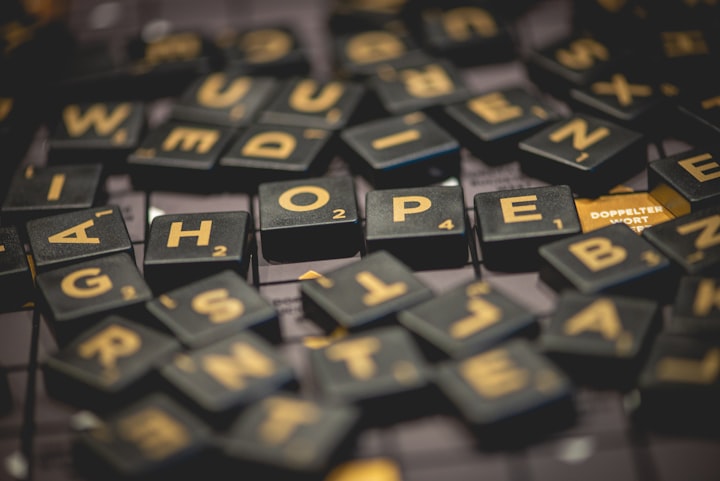The Difference Between Fake and Real Mental Health Support: A Personal Perspective from Someone with Anxiety and ADHD
Through learning the art of holding space and fostering authentic connection.

As someone navigating Generalized Anxiety and ADHD and having served as a peer support worker, my dedication to mental health awareness is unwavering. Unfortunately, becoming authentic mental health allies remains a challenge for many. I've encountered gaslighting and shame in response to my communication, sensory, and auditory processing difficulties, which I cannot always control. Despite these hurdles, society tends to view me through a lens that diminishes my worth due to these distinctive challenges.
To be straightforward, what many people consider helpful often falls short of providing genuine support for individuals grappling with ADHD, neurodivergence, workplace discrimination, and related mental health challenges.
Why? Using hashtags and sharing posts is simpler being an ally is more about extending care and empathy while advocating for professional help. In essence, authentic mental health advocacy surpasses the impact of a mere post or hashtag.
Advocating for mental health or being an ally demands more than a superficial effort. True allyship involves accountability, active listening, continual learning, supporting others, and educating ourselves and those around us. In other words, being an advocate or ally entails more than accumulating likes and shares—it's about creating space and nurturing connections within the community. Are you wondering how to achieve this? The answer is not as daunting as it may seem. Here are a few lessons from my mental health journey that shed light on how to hold space for fellow humans."
ONE: I understand the importance of freedom of speech, but isn't it equally crucial to take accountability for our words and their impact on the world?
This accountability matters because language often mirrors how we perceive ourselves and the world. Instead of using phrases like 'Isn't everyone a little ADHD?' and other problematic expressions, it's important to be mindful.
To be blunt be an adult and ask the person about their experiences rather than making assumptions about their behaviors or symptoms. Why? Because assumptions are often incorrect. I apologize, but it's the reality. Mocking someone based on their diagnosis, symptoms, or challenges does nothing more than invalidate their journey. In simpler terms, such behavior conveys a lack of respect for the individual, and that's not acceptable.
TWO: Drawing from my experience working in mental health, I bring a unique perspective shaped by education, professional insights, and personal experiences. It's essential to note that dispensing advice is not the right approach. A mental health ally should be non-judgmental and non-dismissive.
A true ally is someone who provides support and encouragement, not an individual seeking opportunities to share uninformed and unwanted perspectives on ADHD, neurodivergence, workplace discrimination, and related mental health topics. The key is to listen and empathize— not to solve their issues but simply to be present and hold space for the person."
THREE: It's not just about whether you perceive something as harmless; it's crucial to consider whether the person on the receiving end of gaslighting, jokes, or bullying deems them harmful. Why? Being a mental health ally involves listening to people's needs and preferences and respecting their choices and boundaries.
For instance, I often face criticism for my anxious communication style and stimming behavior when anxious. Unfortunately, some individuals don't take the time to understand my sensory and auditory challenges; instead, they resort to calling me stupid, awkward, or lazy without educating themselves.
Stigmatized beliefs and behavior contribute significantly to the difficulty in seeking help or opening up. This isn't an isolated issue – the UK Mental Health Foundation highlights in an article that when language is used correctly, it can be a powerful motivator; however, when used incorrectly, it becomes toxic and problematic, causing individuals to suffer unnecessarily in silence for years.
So, what does it mean to be a genuine mental health ally? It's about learning to hold space and fostering empowerment, acceptance, compassion, and connection. In other words, showing care and acting like a person matters.
One of the best definitions I have read is from Psychology Today: holding space is.
- It's about creating a space that's judgment-free and safe for having certain discussions and listening to help instead of waiting for a chance to voice your opinions. Using proper words like the ones mentioned in the Canadian Association on Mental Health created this guide on inclusive language.
- It's also about holding yourself accountable for when you weren't not as present as you should have been or if you used the wrong language.
- Being a true ally is about being present and having a distraction-free, nonjudgemental space, being respectful and not gossiping or purposefully doing things to make another person's life harder or making their challenges or diagnosis into a joke or excuse.
REFERENCES
CORRIGAN, P. W., & WATSON, A. C. (2002). Understanding the impact of stigma on people with mental illness. World Psychiatry, 1(1), 16-20. https://www.ncbi.nlm.nih.gov/pmc/articles/PMC1489832/
R. (2024, January 10). 5 Ways to Support Mental Wellbeing in 2024 - Mental Health First Aid. Mental Health First Aid. https://www.mentalhealthfirstaid.org/2024/01/5-ways-support-mental-wellbeing-2024/
What Does It Mean to Hold Space? (2024, January 1). Psychology Today. https://www.psychologytoday.com/ca/blog/between-the-generations/202305/what-does-it-mean-to-hold-space
Hold Space, Not Ropes: The Difference Between Compassion and Codependency. (2020, March 13). Sober Recovery. https://www.soberrecovery.com/recovery/hold-space-not-ropes/
Why the language we use to describe mental health matters. (n.d.). Mental Health Foundation. https://www.mentalhealth.org.uk/explore-mental-health/blogs/why-language-we-use-describe-mental-health-matters
Centre for Addiction and Mental Health. (2017). Words matter: How to talk about suicide [Brochure]. 1 https://www.camh.ca/-/media/files/words-matter-suicide-language-guide.pdf
Central Auditory Processing Disorder. (n.d.). Central Auditory Processing Disorder. https://www.asha.org/practice-portal/clinical-topics/central-auditory-processing-disorder/
About the Creator
Sandy Pace
I’m a freelance writer with ADHD and anxiety. Who’s passionate about mental health awareness and other related topics. And has written for publications like ADDitude Magazine, Thought Catalog, TotallyADD, and other publications.






Comments
There are no comments for this story
Be the first to respond and start the conversation.